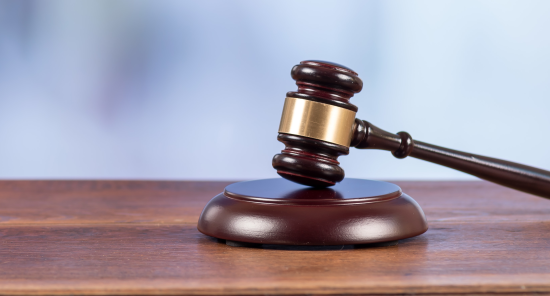Discrimination at Business Establishments
California’s Unruh Civil Rights Act protects those with the characteristics listed in the section “What is protected?” from discrimination or harassment by business establishments. This law requires both public and private businesses to provide individuals “full and equal accommodations, advantages, facilities, privileges or services.” It applies to housing and public accommodations as well as to establishments such as stores, restaurants, barber shops, among others.

What Discrimination Looks Like

Protected
Characteristics

Available Remedies

Complaint Process

What Discrimination Looks Like
The Unruh Civil Rights Act requires “full and equal accommodations, advantages, facilities, privileges or services in all business establishments.” This includes, but is not limited to, the following places:
- Hotels and motels
- Nonprofit organizations that have a business purpose or are a public accommodation
- Restaurants
- Theaters
- Hospitals
- Barber shops and beauty salons
- Housing accommodations
- Public agencies
- Retail establishments
The following examples represent potential violations of the Unruh Civil Rights Act. Other situations may also qualify as Unruh Act violations depending on the specific circumstances.
- A hotel charges a $100 service fee only to guests of a certain racial group but not to other guests of the hotel
- A doctor refuses to treat a patient who has been diagnosed as HIV positive
- A same-sex couple is denied a table at a restaurant even though there are vacant tables available and other customers are seated immediately
- A visually impaired individual is told their service animal is not allowed in a store
- Charging men and women different prices for comparable services, such as clothing alterations, haircuts, dry cleaning, or drinks at a restaurant or bar
- Promoting a business with “ladies night” discounts on admission and services
Protected Characteristics
California law protects individuals from illegal discrimination by a business establishment based on the following:
Protected characteristics include::
- Race, color
- Ancestry, national origin
- Religion, creed
- Age (40 and over)
- Disability, mental and physical
- Sex, gender (including pregnancy, childbirth, breastfeeding or related medical conditions)
- Sexual orientation
- Gender identity, gender expression
- Medical condition
- Genetic information
- Marital status
- Military or veteran status
Available Remedies
State law provides for a variety of remedies for victims of housing discrimination, including:
- Up to three times the actual damages and no less than $4,000 in statutory damages
- Out-of-pocket expenses
- Cease and desist orders
- Damages for emotional distress
- Punitive damages
- Statutory damages
- Attorney’s fees and costs
FAQ
What can I do if I am denied service by a business establishment because of my race, sex, religion, or any other category protected under the Unruh Civil Rights Act?
If you believe you have been discriminated against in violation of the Unruh Civil Rights Act you may file a complaint with the Civil Rights Department (CRD) or file a private lawsuit.
Start by filing an “Intake Form.” You can find that form using any of the following methods:
- Online by creating an account and using our interactive California Civil Rights System, CCRS. When you begin, you will see instructions how to open a free account. From then on you can use the service to communicate with CRD.
- Call the Contact Center at 800-884-1684 (voice). If you are deaf or hard of hearing, please call 800-884-1684 (voice or 711 relay operator) or 800-700-2320 (TTY).
- Print and fill out a hard copy of the Intake Form form that matches your issue and send it:
- Via U.S. mail to any of CRD’s office locations.
- Via E-mail to contact.center@calcivilrights.ca.gov
Is there a time limit for filing an Unruh discrimination complaint with CRD?
Yes. An Unruh Civil Rights Act complaint must be filed with CRD within one year of the date of the alleged discriminatory act. An individual may file a private lawsuit without first filing a complaint with CRD. Private lawsuits must be filed within two years of the date an alleged discriminatory act occurred.
Can businesses charge men and women different prices for the same services?
No. The Unruh Civil Rights Act prohibits gender discrimination by businesses in their pricing practices. For example, a dry-cleaner business cannot charge more to clean a woman’s blouse than a man’s shirt when the two items are similar in detail; or a hair stylist cannot charge more to trim a woman’s hair than a man’s when the hair is similar in length.
Can a business have a “ladies night” promotion where only women get a discount or free service?
No. The Unruh Civil Rights Act prohibits offering promotions or discounts based on sex or gender.
Can a business have separate spaces for men and women?
Except for separate bathrooms, locker rooms or other areas where people are unclothed such as a spa, a business that is open to the public cannot have separate spaces for men and women. For example, a gym cannot have a “women only” or “men only” exercise room.
Can a business exclude men or women?
No. A business establishment that would otherwise be completely open to the public cannot exclude people because of their sex. Excluding one sex from the premises even for limited times violates the Unruh Civil Rights Act.
What remedies are available to persons who file Unruh discrimination complaints?
The remedies available for Unruh Civil Rights Act violations include:
- Actual damages
- Up to three times the amount of actual damages incurred but no less than $4000 for each offense
- Attorney fees and costs






